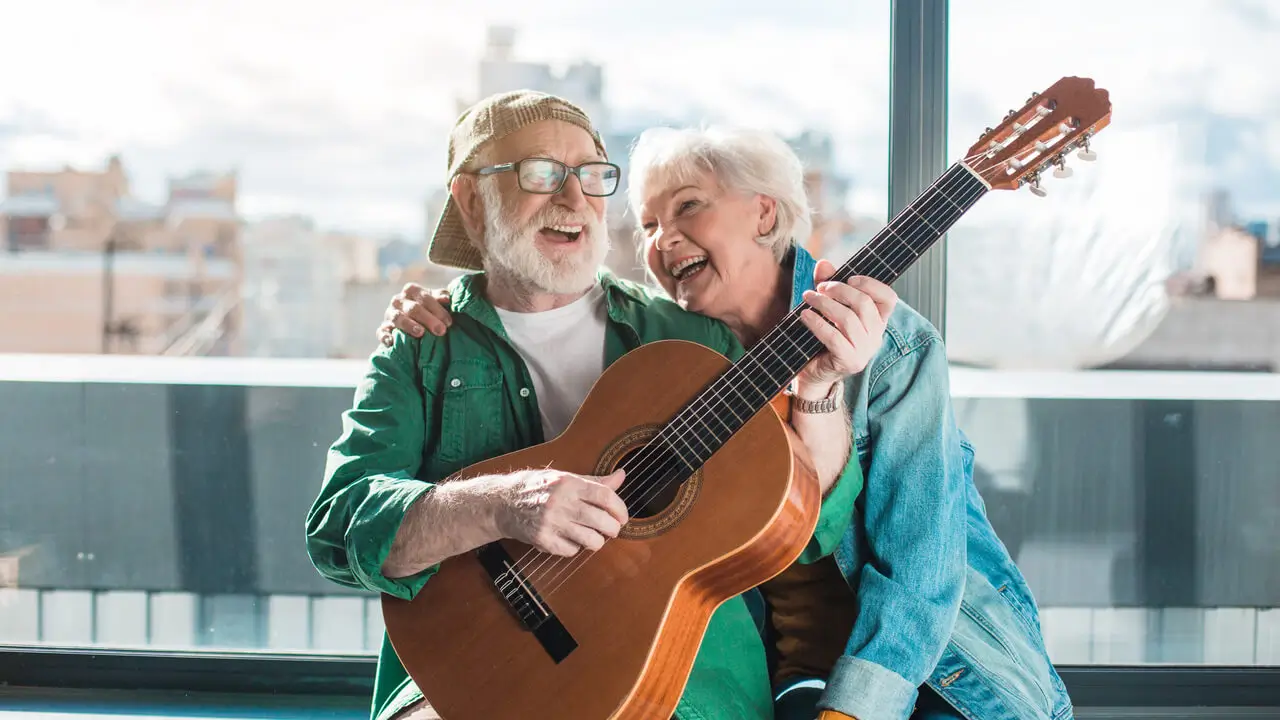How Music Therapy and Group Sing-Alongs Boost Memory, Mood, and Social Connection
Think about the last time a song took you back in time—maybe a tune from your teenage years, a wedding song, or a melody your parents used to hum. Music has a way of sticking with us, weaving itself into our memories and emotions in ways few other things can. For seniors, this connection is even more powerful, offering therapeutic benefits for the mind, body, and spirit.
At Salem County Adult Day Center, music isn’t just background noise—it’s a key part of how we support wellness, encourage social engagement, and bring joy to our members.
Music and Memory: A Deep Connection
It’s no coincidence that people with dementia or Alzheimer’s often remember lyrics long after other memories fade. That’s because music activates multiple areas of the brain, including those responsible for memory, emotions, and movement.
Research shows that:
- Familiar songs can help trigger long-lost memories and create a sense of comfort.
- Music can improve cognitive function, helping seniors stay mentally engaged.
- Rhythmic patterns in songs stimulate brain activity, making it easier to recall words and experiences.
For individuals facing memory loss, something as simple as hearing an old favorite tune can spark recognition, conversation, and even moments of clarity.
Lifting Spirits: The Emotional Power of Music
Music has a way of changing our mood instantly. A slow, soothing melody can bring calm during moments of stress, while an upbeat tune can boost energy and positivity. For seniors, music can help:
- Reduce anxiety and depression by promoting relaxation.
- Encourage self-expression, even for those who have trouble communicating verbally.
- Provide a sense of purpose—whether by singing along, clapping, or simply enjoying the rhythm.
It’s no surprise that music therapy is widely used in senior care settings to help reduce feelings of loneliness, agitation, and confusion.
The Social Joy of Group Sing-Alongs
There’s something special about singing with others. It brings people together, breaks down barriers, and creates shared moments of joy. At our center, group sing-alongs are a favorite activity—not just because they’re fun, but because they provide meaningful social interaction.
When seniors join in on a song, they:
- Feel connected to those around them.
- Experience a sense of belonging, even if they struggle with words in conversation.
- Engage in gentle physical movement, like tapping, clapping, or swaying to the beat.
Even for those who don’t sing, simply listening and enjoying the moment can bring a deep sense of comfort and joy.
Bringing More Music Into Daily Life
The great thing about music is that it’s always accessible. Whether through live performances, recorded playlists, or casual humming, it can be woven into daily routines. Families can create personalized playlists with their loved ones’ favorite songs, use music to set a calming tone during mealtimes, or even dance together in the living room.
At Salem County Adult Day Center, we embrace music in many ways—through sing-alongs, instrument activities, themed music days, and even gentle movement sessions set to familiar tunes. Because at the end of the day, music isn’t just entertainment; it’s a form of therapy, a source of comfort, and a bridge to connection.
So next time you visit an elderly loved one, try playing a song from their past. You might be surprised at the memories, smiles, and even conversations it sparks.

